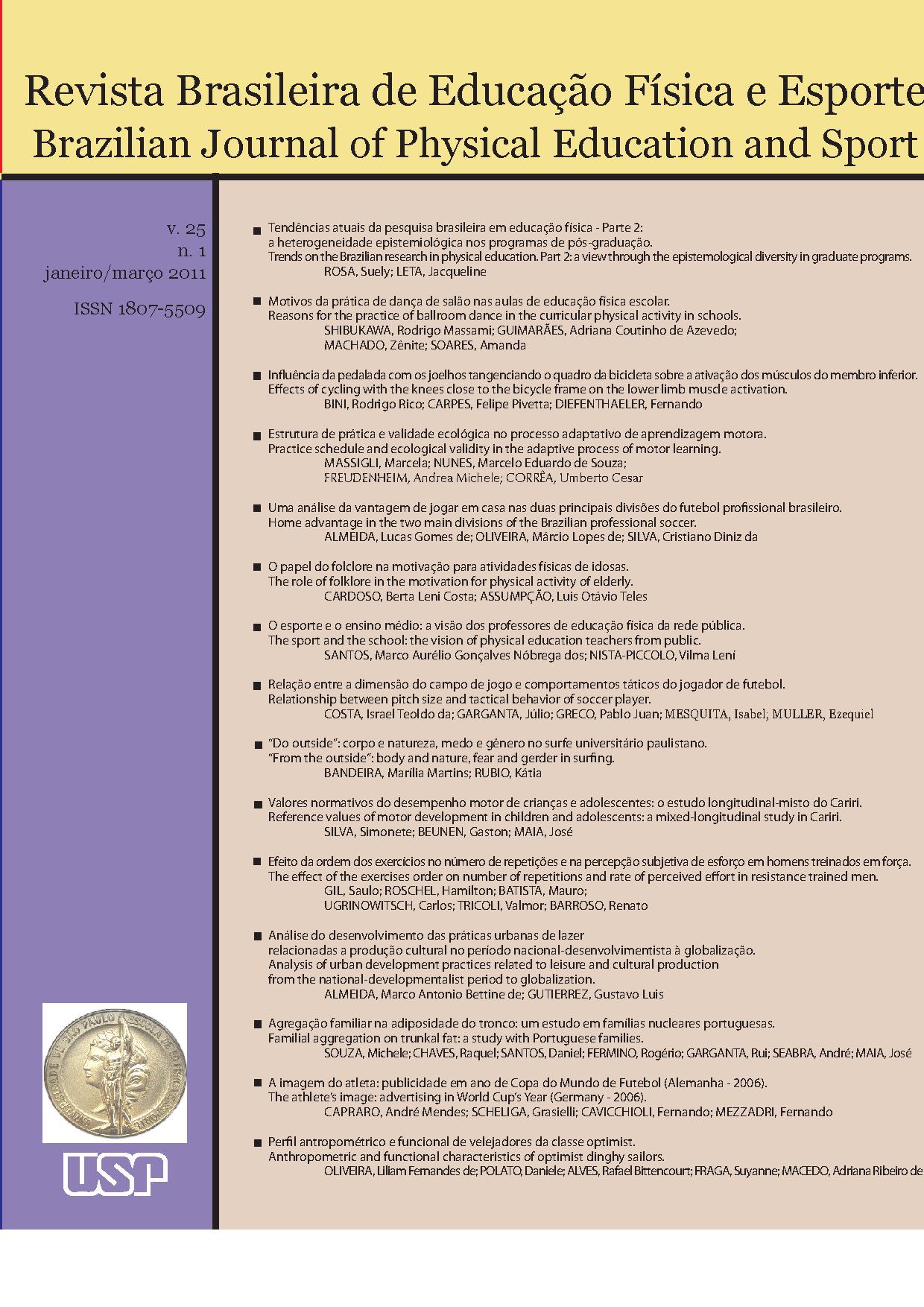Practice schedule and ecological validity in the adaptive process of motor learning
DOI:
https://doi.org/10.1590/S1807-55092011000100005Keywords:
Motor learning, Practice schedule, Ecological validity, Table tennis, Adaptive processAbstract
The aim of this study was to investigate the effect of different practice schedules in the adaptive process of motor learning in function of the ecological validity of the experimental situation. Participants were 104 children distributed in eight experimental groups (2 levels of ecological validity x 4 practice schedules). The task was to hit a table tennis ball thrown by equipment or experimenter, aiming to hit a target located on the opposite side of the table. The study was carried out in two phases: stabilization and adaptation. Performance was analyzed through the sum of the points achieved in ten trial blocks. Results showed that the effects of constant, random, constant-random and random-constant practice on the adaptive process of motor learning were similar in both levels of ecological validity; constant practice was the less effective schedule on the adaptive process of motor learning in both experimental situations.Downloads
Download data is not yet available.
Downloads
Published
2011-03-01
Issue
Section
naodefinida
License
Todo o conteúdo da revista, exceto onde está identificado, está licenciado sob uma Licença Creative Commons (CC-BY)
How to Cite
Massigli, M., Nunes, M. E. de S., Freudenheim, A. M., & Corrêa, U. C. (2011). Practice schedule and ecological validity in the adaptive process of motor learning . Brazilian Journal of Physical Education and Sport, 25(1), 39-48. https://doi.org/10.1590/S1807-55092011000100005


